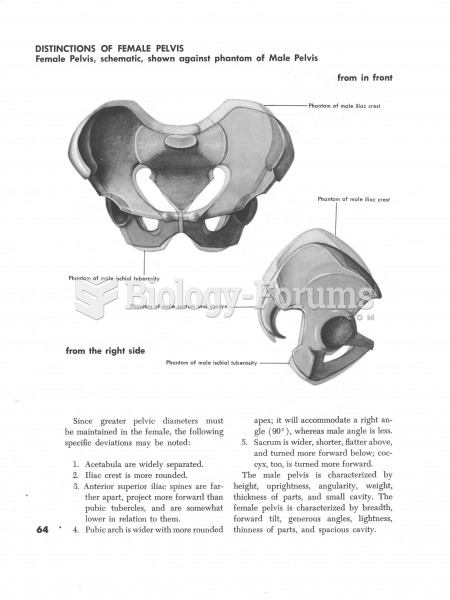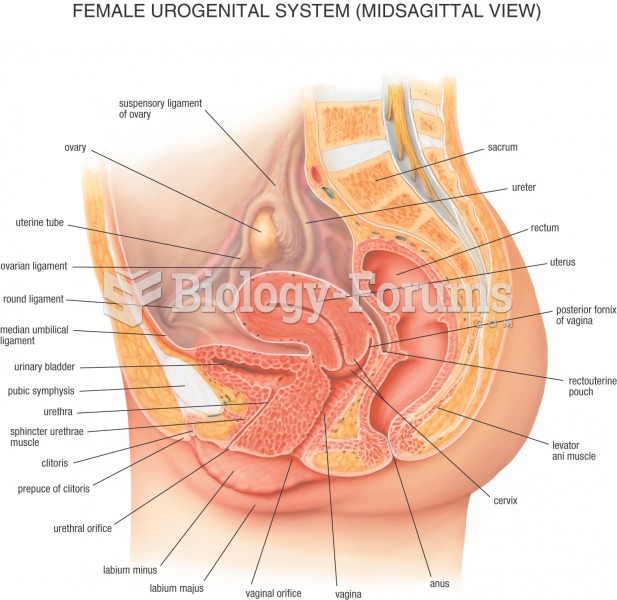|
|
|
The horizontal fraction bar was introduced by the Arabs.
Egg cells are about the size of a grain of sand. They are formed inside of a female's ovaries before she is even born.
Astigmatism is the most common vision problem. It may accompany nearsightedness or farsightedness. It is usually caused by an irregularly shaped cornea, but sometimes it is the result of an irregularly shaped lens. Either type can be corrected by eyeglasses, contact lenses, or refractive surgery.
The liver is the only organ that has the ability to regenerate itself after certain types of damage. As much as 25% of the liver can be removed, and it will still regenerate back to its original shape and size. However, the liver cannot regenerate after severe damage caused by alcohol.
Cyanide works by making the human body unable to use oxygen.






